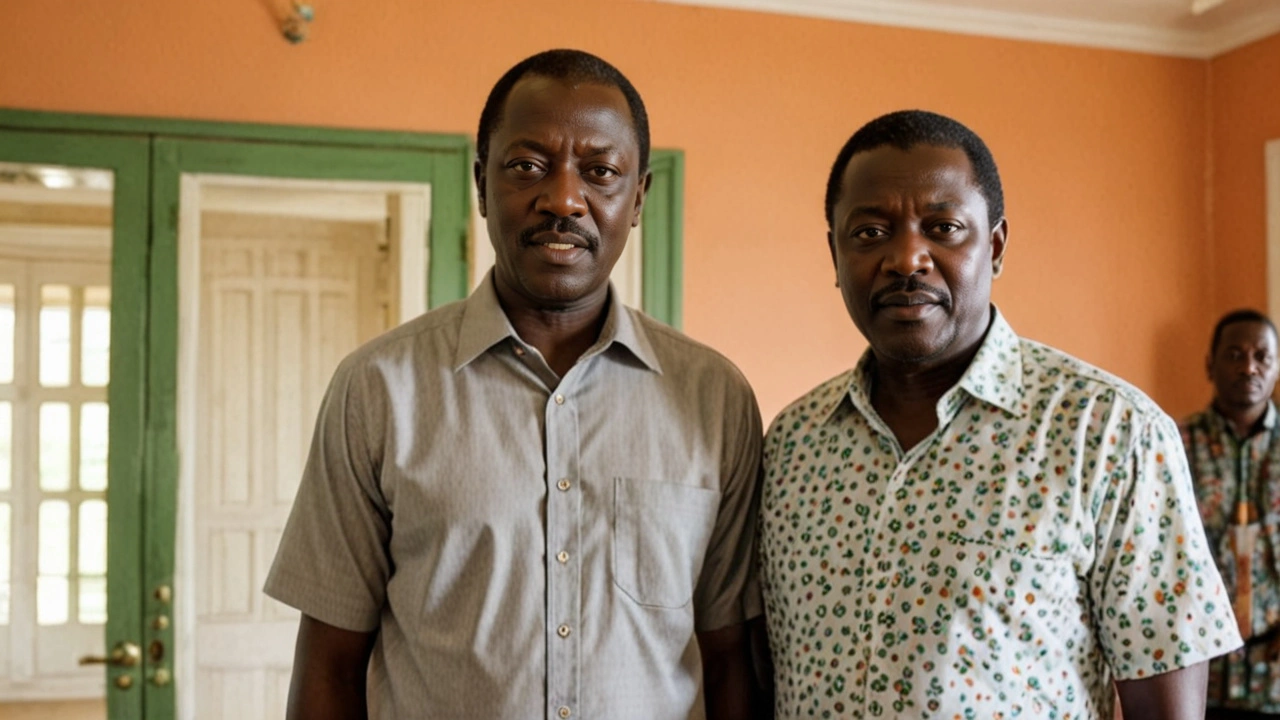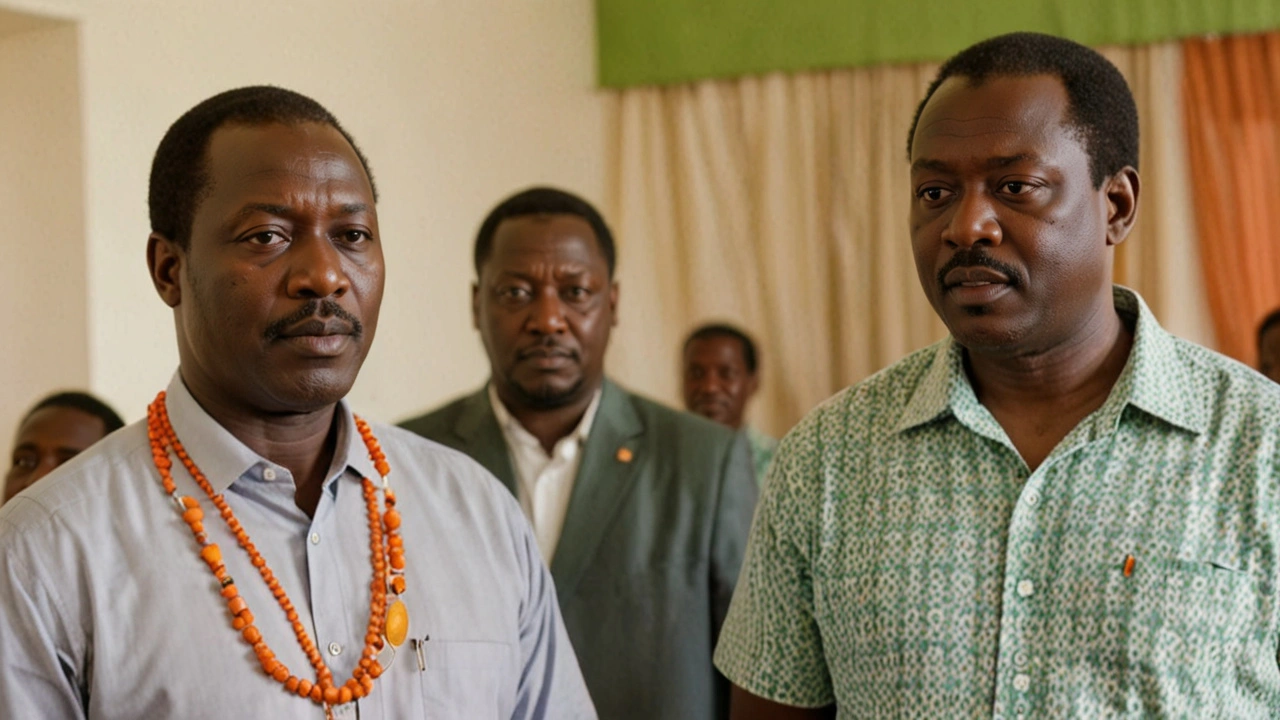Raila Odinga Junior's Statement Causes Public Debate
Raila Odinga Junior, the son of Kenya’s former Prime Minister Raila Odinga, posted a succinct and notable message on social media: 'Everybody is an individual please!' This statement came shortly after his father publicly supported President William Ruto's recent proposal to initiate a dialogue specifically focused on engaging Kenya's youth. The timing and content of Raila Junior's message were seen by many as a clear indication of his desire to distance himself from his father's stance.
The proposal from President Ruto aims to address critical issues plaguing Kenya, including unemployment, corruption, the burgeoning public debt, and the overall management of the economy. It involves a dialogue session with 150 selected members slated to commence on Monday, 15 July. Raila Junior’s statement appeared to advocate for personal autonomy and individual thought, markedly separating his perspective from that of his father. This individualistic call sparked a wave of discussion and debate across social media platforms and among political analysts.
Public Reaction and Political Context
Junior's declaration set the stage for a broad spectrum of reactions. Some interpreted his words as an outright rejection of any association with his father's support for President Ruto’s initiative. On the other hand, others viewed it as a mere reminder that each person, regardless of their political lineage or affiliations, can and should hold their own beliefs and opinions.
This move took shape in a politically charged environment where members of the Azimio coalition, led by Raila Odinga, including high-profile politicians such as Martha Karua and Eugene Wamalwa, have been vocally critical of Ruto's proposal. Karua and Wamalwa, in particular, have branded the dialogue initiative as a 'trap'. They caution the youth to remain vigilant and wary of politicians who might exploit their quest for greater accountability for personal or political gain.
Examining the Proposed Dialogue
President Ruto's proposed dialogue aims to create a platform for the youth to express their views and lay bare their aspirations and demands. This dialogue, which includes 150 selected youthful members, is perceived as a genuine effort to bridge the gap between policymakers and the youth.
Ruto’s initiative has been welcomed by some as a highly needed move considering Kenya's current economic and social challenges. The youth, who make up a significant portion of Kenya’s population, have been particularly hard-hit by unemployment and underemployment. Issues such as rampant corruption and rising public debt have further exacerbated the economic woes faced by young Kenyans.
By opening up a dialogue, the President aims to create an avenue for direct engagement with the youth, which many see as a positive, even transformative step. However, skepticism remains, mostly from opposition members who have urged caution, warning that politicians historically have shown a propensity to hijack such initiatives for their own ends.
Youth Perspectives and Expectations
The sentiments expressed by Raila Junior resonate with many young Kenyans who feel that individuality is paramount in political discourse. The youth in Kenya are increasingly seeking platforms where their genuine voices can be heard, free from traditional political allegiances.
Many young people are expected to approach the proposed dialogue with a blend of hope and caution. While the potential for real change is alluring, there is an undercurrent of wariness regarding the intentions behind the initiative. The dual sentiments elucidate the complex and often ambivalent relationship the youth have with politics in the nation.

Conclusion
Raila Odinga Junior’s simple yet profound statement has added a new dimension to the larger political dialogue in Kenya. As the country prepares for the proposed youth dialogue, Raila Junior’s message underscores the importance of individuality and personal beliefs in the context of broader political frameworks.
Whether President Ruto's initiative will succeed in addressing the core issues faced by the youth, or fall prey to political manipulation as cautioned by critics, remains to be seen. What is clear, though, is that the nation's youth are ready to stake a claim in their future, with an eye on accountability and tangible change.
The coming days will undoubtedly shed more light on the unfolding dynamics and the potential impact of this dialogue on Kenya's socio-political landscape. As always, the youth remain at the heart of the conversation, underscoring their pivotal role in shaping the nation’s future.


 Sports
Sports
Eduardo Torres
July 10, 2024 AT 19:39Seeing calls for personal autonomy during such a charged political moment is encouraging; it reminds us that each voice matters in shaping Kenya's future. While the dialogue initiative seeks to engage youth, it is vital that individuals feel free to express their own opinions without pressure.
Emanuel Hantig
July 22, 2024 AT 09:25Each individual’s right to think independently enriches the democratic fabric :) By standing apart from inherited expectations, even a figure like Raila Junior highlights the importance of self‑determination. The youth dialogue can become a true exchange only if participants are allowed to share personal convictions openly.
Byron Marcos Gonzalez
August 2, 2024 AT 23:12The echo of rebellion rings louder than any party anthem when a son dares to carve his own destiny!
Chris Snyder
August 14, 2024 AT 12:59Providing context, the proposed youth dialogue involves 150 carefully selected participants who will meet next week to discuss unemployment, corruption, and debt issues. It aims to create a direct channel between policymakers and young citizens, fostering transparency and accountability. Keep an eye on the outcomes as they could set a precedent for future civic engagement 😊
Hugh Fitzpatrick
August 26, 2024 AT 02:45Oh great, another political manifesto masquerading as a call for individuality-just what we needed. Still, praising the effort to think for oneself can't hurt, even if the execution remains vague.
george hernandez
September 6, 2024 AT 16:32The call for each person to be seen as an individual resonates deeply in a nation where collective identities often dominate political discourse. Young Kenyans are increasingly aware that their aspirations cannot be neatly packaged into legacy party lines. When a public figure steps away from familial expectations it sends a powerful signal to the broader citizenry. The youth dialogue proposed by the president offers a platform that could bridge the gap between policy makers and the everyday dreamer. However the success of such an initiative hinges on genuine inclusion rather than token representation. History has shown that political maneuvers frequently exploit youth enthusiasm for short term gains. A sincere commitment to transparency would lend credibility to the process. Moreover providing concrete pathways for employment would address the root concerns that many young people voice daily. Reducing corruption remains a cornerstone for rebuilding trust across all generations. The public debt dilemma also requires innovative solutions that involve fresh perspectives from new entrants to the workforce. If the selected 150 participants truly reflect the diversity of Kenya's regions and socioeconomic backgrounds the dialogue can yield actionable insights. Conversely a narrow selection would only reinforce existing power structures. The emphasis on individual thought encourages critical analysis rather than blind allegiance. Such an environment nurtures leadership that is accountable and responsive. In the end the path forward will be shaped by the willingness of both the youth and the elders to listen and adapt.
bob wang
September 18, 2024 AT 06:19Indeed, the emphasis on personal agency is noteworthy; however, the broader implications warrant careful scrutiny. 😊